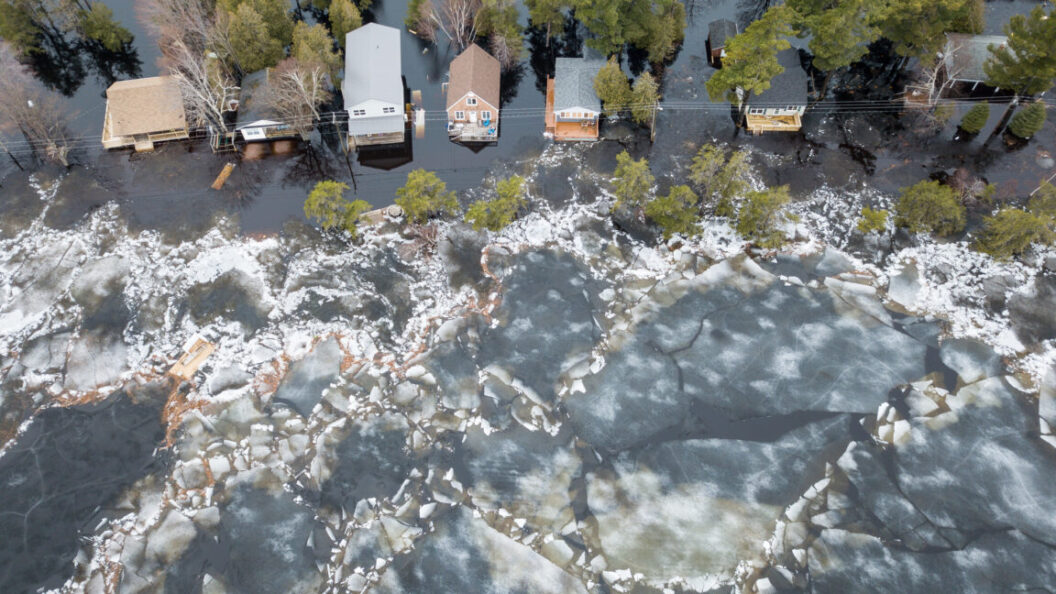Assessing Economic Damages from Carbon Emissions: A New Study Unveils Profound Impacts
Recent research undertaken by climate scientists Jason Callahan and Patrick Mankin sheds new light on the economic consequences of carbon emissions by major oil companies. Their study not only tracks the contribution of these companies to global warming but also translates emissions data into tangible financial damages linked to increased temperatures and climate-related disasters. This work highlights the growing intersection of climate science and economics, illustrating how emissions decisions made decades ago continue to reverberate through economies today.
The Research Methodology
Callahan and Mankin’s approach is innovative and flexible, allowing for a comprehensive assessment of economic damages over time. Drawing from internal oil company research dating back to around 1980, they underscore that the industry was aware of climate change risks well before public acknowledgment. The study utilizes established empirical data to connect elevated temperatures to economic downturns, applying econometric methods to determine causal relationships between climate hazards—such as extreme weather and agricultural impacts—and economic outcomes like income loss and reduced productivity.
“Recent peer-reviewed work has used econometrics to infer causal relationships between climate hazards and outcomes such as income loss, reduced agricultural yields, increased human mortality, and depressed economic growth,” they state, emphasizing the importance of their nuanced calculations.
By feeding emissions data into their models, the researchers translate the resultant global temperature increases into localized impacts, particularly focusing on instances of extreme heat. This process reveals not just statistical correlations, but a clearer picture of how these increases directly translate into economic damages.
Massive Damages Attributed to Carbon Emissions
Using real-world examples, the study illustrates the staggering financial implications of greenhouse gas emissions. Notably, they analyzed Chevron’s impact, which contributed to an increase of 0.025°C in global temperatures in 2020 alone. For the broader time frame from 1991 to 2020, the damages linked to Chevron range from approximately $800 billion to a staggering $3.6 trillion, predominantly affecting nations in the tropics.
Continuing their investigation across other major emitters, Callahan and Mankin find that oil giants such as Saudi Aramco, Gazprom, Chevron, and ExxonMobil have each incurred damages around $2 trillion due to their emissions, while BP tallies about $1.45 trillion. Overall, the study estimates that the combined damages attributable to 111 carbon-producing entities total roughly $28 trillion. This aggregate figure underscores the extensive economic burden placed upon vulnerable regions and sectors worldwide.
The Global Significance of the Findings
The findings from Callahan and Mankin’s research carry substantial implications for global policy and climate action strategies. They amplify ongoing discussions concerning the responsibility of fossil fuel companies regarding climate change impacts. The research presents a compelling argument for establishing accountability and potentially instituting penalties for major polluters, as the economic repercussions are not merely theoretical but manifest in real financial terms.
This work also adds urgency to the climate change debate, urging stakeholders—including governments, investors, and the public—to consider the long-term financial risks associated with carbon emissions. With a clearer understanding of the economic consequences tied to greenhouse gas emissions, there is a potential for enhanced policy measures aimed at curbing emissions and fostering sustainable practices.
Conclusion
Callahan and Mankin’s research illustrates that the financial implications of climate change are both substantial and unavoidable. The staggering $28 trillion in damages attributed to carbon emissions from just a select group of companies serves as a wake-up call for industries worldwide. As the climate crisis deepens and its economic impacts escalate, it is imperative that policymakers incorporate such data into their frameworks to forge more effective strategies for mitigating climate change risks and holding responsible parties accountable. The integration of economic analysis into climate policy could pave the way for a more sustainable future, mitigating both environmental and financial fallout.









